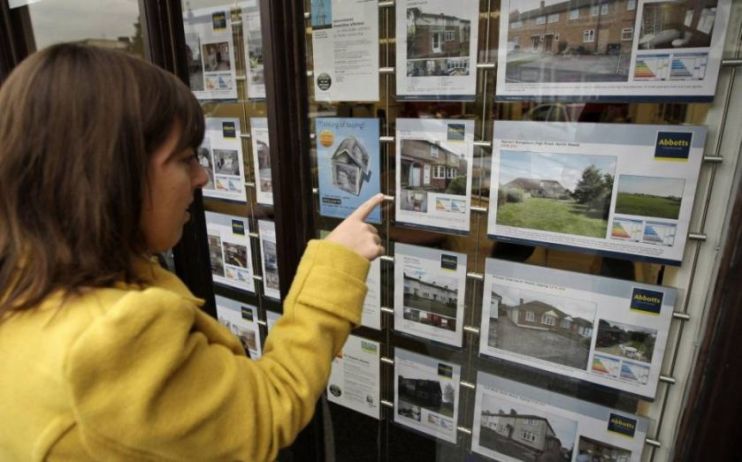Halifax: UK house prices near ‘pre-financial crash levels’

UK house prices have hit a record high despite rising at a slower rate than a year ago, according to the Halifax house price index this morning.
The lender said that the affordability of houses was “close to pre-financial crisis levels”, as house prices remained historically high at an average of £252,765.
The difference between the 2007 financial crash and today, is that mortgage rates are considerably lower.
Despite slowing their ascent in the first quarter of 2021, inflation has risen by 5.7 per cent, as the standard house price a year ago sat at £252,030.
The 5.7 per cent jump was down from a nearly five year high of seven per cent last year, the lender reported.
Prices lifted only 0.3 per cent in the first quarter of this year, smaller than the 2.5 per cent jump in the final quarter of 2020.
The London property market showed slower gains in house prices over the start of this year, the “strongest” since the 2016 EU referendum, Halifax said.
The standard house price in Greater London sat at £505,359, down 2.5 per cent from the final quarter of last year, however, has edged 2.1 per cent higher in comparison to 2020.
Demand for larger properties carried through from last year, while existing houses were hit by rising inflation 6.2 per cent more than new builds.
Are we due another crash?
The outlook for the next six months appears to be bright, particularly with the help of the “ongoing government support,” CEO of property platform Twindig, Anthony Codling said.
“There is a risk that when the extended holiday ends, the UK housing market will wake up with a hangover.”
However, Codling advised home buyers not to worry, “because at the moment mortgage supply is increasing, whereas, in the credit crunch, mortgage supply fell off a cliff edge.”
“The spring and summer selling seasons will be strong, but as the stamp duty holiday ends in September, concerns about another cliff edge will start to be voiced and this may soften house prices in the autumn.”
Financial analyst at AJ Bell, Laith Khalaf agreed that a looming financial crash is unlikely, because “the housing market has repeatedly confounded economists expectations, and it keeps going from strength to strength.”
With low-interest rates and “highly accommodative” government policy, the housing market has a strong supply and demand dynamic, Khalaf added.
“While there might be a few bumps along the way, particularly at the end of the stamp duty…the property market has proved itself to be unbelievably resilient. And in large part, that comes down to the efforts the government and the Bank of England have made to make mortgage borrowing incredibly easy and cheap.”